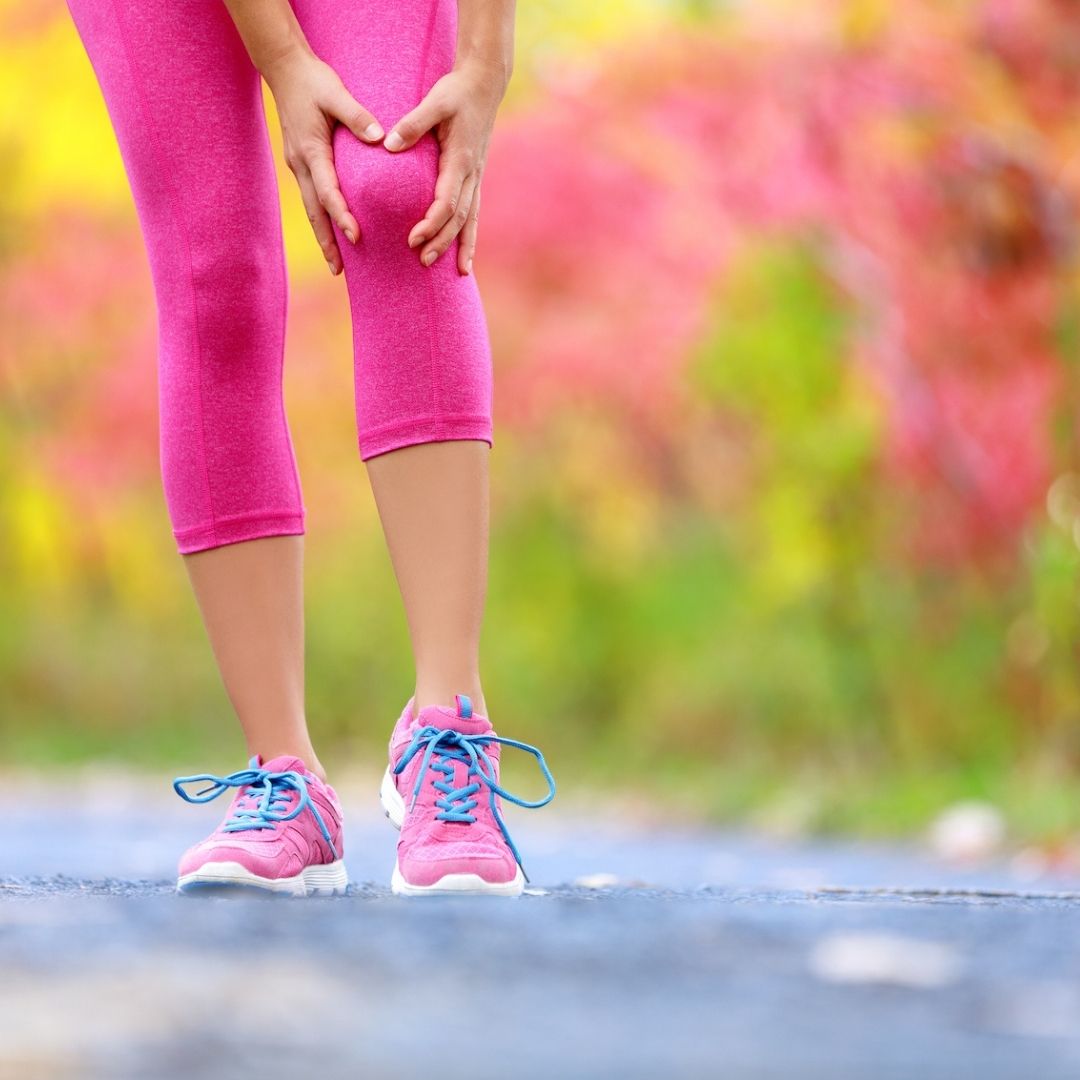8 Tips to Support Your Joints
Support good joint health to help overcome inflammation and sore joints.
Support Joint Health
Our top 8 tips to support your joints. Discover dietary and lifestyle recommendations to help reduce inflammation and facilitate quicker exercise recovery times.
Healthy Joints
Sore joints can really hold you back. Whether you are a professional athlete, a fitness enthusiast or just venturing to complete your first 5km, the muscle soreness and painful joints in the 12 to 48-hour time frame after a vigorous workout can serve as a major frustration. Luckily there are many dietary and lifestyle recommendations you can implement into your daily regime to help reduce inflammation and facilitate quicker recovery times.

Top Foods for Healthy Joints
1. Eat Anti-Inflammatory Foods
Eat plenty of alkalising foods. These include fresh fruits, green leafy vegetables, dried fruit, wholegrain bread, rice, quinoa, millet, oily fish, raw nuts and seeds. These are all known as anti-inflammatory foods.
Drinking eight glasses of water, coconut water, green vegetable juices or herbal teas including nettle tea, green tea, ginger tea or chamomile tea can all help manage inflammation and aid sore joints.
2. Consume More Omega-3s
Both omega-3 and omega-6 are considered essential, however the western diet contains high levels of omega-6 and very little omega-3 fats. Omega-3 fatty acids are the building blocks of every living cell in the human body. They are necessary for normal health and development. Without them, cells can’t function, renew, or maintain themselves properly. Omega-3s support brain, eye, and heart health throughout life. Omega-3s also play an important role in reducing inflammation throughout the body – in the blood vessels, the joints and elsewhere. By reducing inflammation, you can shorten your recovery time by reducing soreness and stiffness after a workout.
Too much foods rich in omega-6 ALA (the so called ‘bad’ omega-6) can contribute to inflammation. Therefore, it is best to reduce your intake of red meats, processed meats, vegetable oils, highly refined foods (such as pre-packaged buns, biscuits, cakes, pastries, doughnuts), deep-fried foods, and fast food. It’s good to eat a portion of lean red meat once a week.
To manage inflammation and lessen joint pain, experts recommend 2 to 3 portions of oily fish weekly (salmon, sardines, anchovies, mackerel, tuna). Surprisingly, a massive 89pc of Irish people are not consuming sufficient oily fish in their diet, so often there is a need to take a premium quality omega-3 fish oil such as Eskimo-3, which is known for its purity, freshness and stability.
3. Physical Activity
A combination of stretching and remaining physically active are extremely important for avoiding joint stiffness. Strive for a minimum of 30 minutes of moderate-intensity physical activity (e.g. walking) 5 days per week. In addition, a comprehensive stretching routine can help you maintain mobility and avoid feeling stiff. When you have sore joints, increasing your activity can decrease your pain, improve your range of motion, strengthen your muscles and increase your endurance. It is important to choose the right kinds of activities. Activity that build the muscles around your joints but don’t damage the joints themselves are good.
Focus on stretching, range-of motion exercises and gradual progressive strength training. A physical or occupational therapist can help you develop an exercise program that’s right for you. If running is your passion, make sure to warm up thoroughly. Running and working out on cold muscles can exacerbate joint pain. Stretching, walking, swimming and yoga can prove beneficial. Be careful not to overdo it though. Aim for 30 mins 5 times a week.
4. Anti-Inflammatory Spices
Spices such as curcumin and ginger are good at reducing inflammation. Ginger and curcumin (the active part of turmeric) are well known for their benefits for joint health. Ginger is an extract which helps to maintain joint mobility and avoid morning stiffness.
The Mozaffari et al. (2016) study on 120 patients with osteoarthritis, demonstrated that use of 500mg ginger a day for three months caused a decrease in inflammatory markers compared to the group given a placebo. Altman et al (2001) found that among 247 patients with osteoarthritis (OA) of the knee with moderate to-severe pain, those taking ginger extract for six weeks experienced significant reduction in knee pain on standing, compared with those taking a placebo.
Curcumin helps to control inflammatory responses in the body, helps to protect joints and helps to maintain joint flexibility. While curcumin offers great benefits, absorption has always been an issue. ZinCuFlex uses a patented process “NPT501TM” that combines curcumin with liquefied ginger to achieve 65x better absorption compared to ordinary curcumin, making it more bioavailable and therefore more effective. Check out this video, which clearly shows superior absorption.
5. Protein
Top quality protein rich foods like eggs (or egg whites), soy products, lean meats, fish, beans and lentils can help aid healing and recovery after intense training.
6. Keep Hydrated
Water is extremely important to the joints. Synovial fluid contains water; if you become dehydrated, less synovial fluid is available to protect the joints.
How to Increase Your Water Intake?
- Start your day with hot water and lemon, which is both energising and great for digestion.
- Have a water bottle with you at all times. Use BPA free reusable bottles.
- Add flavour by adding a wedge of lemon, lime or orange.
- Have a glass of water at your desk.
- Drink water before, during and after exercise.
7. Weight Loss
Being overweight increases the impact on the weight-bearing joints, in particular the knees and ankles. Making incremental, permanent lifestyle changes resulting in gradual weight loss is often the most effective method of weight management. When you lose weight, you increase circulation plus take the stress off the painful joint – all of which eases pain.
8. Soak in Epsom Salts
Soaking in a relaxing bath containing Epsom salts rich in magnesium is a great way to relax muscles and speed up recovery after a workout.

